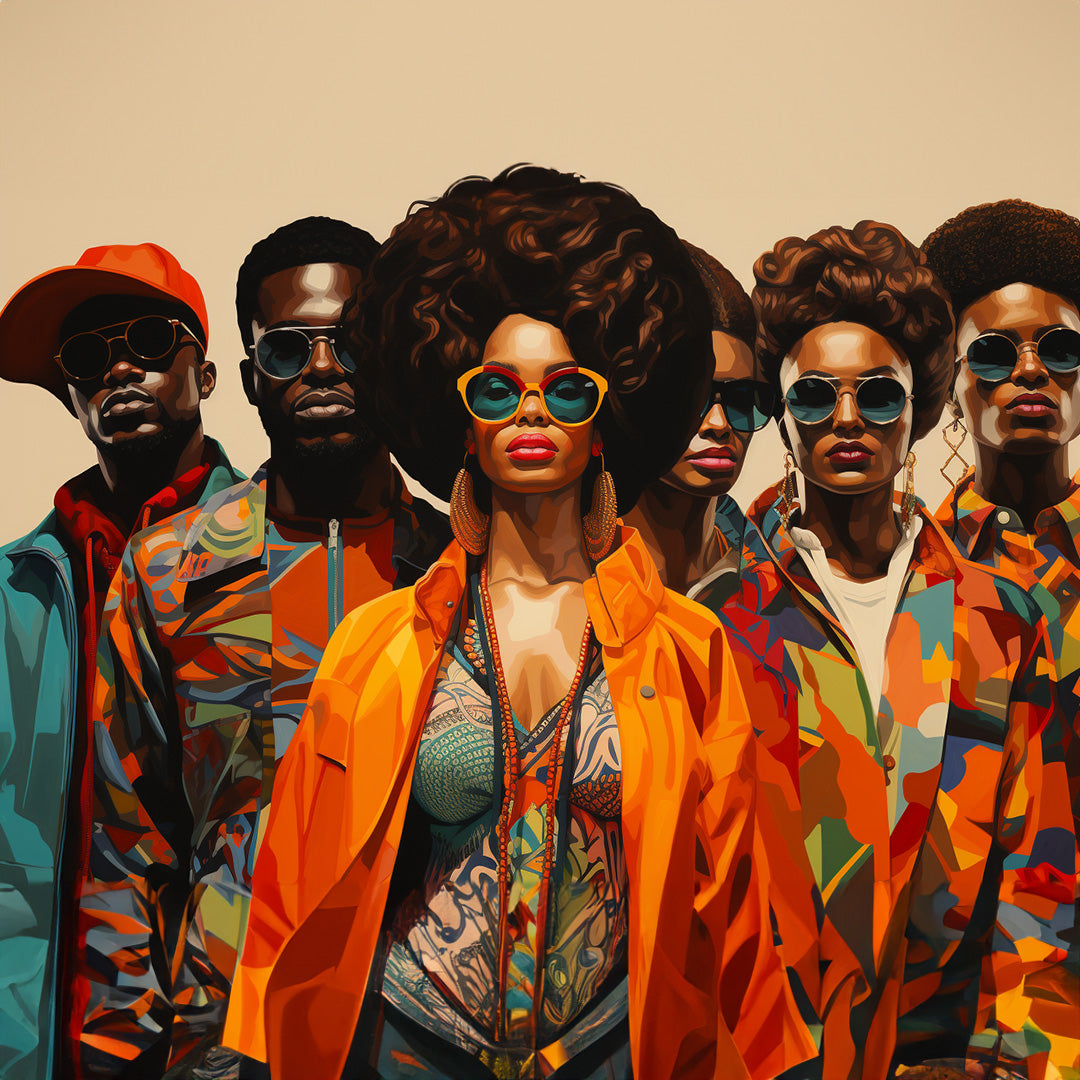
Pan-Africanism and the History of Afrocentric Fashion: A Global Revival
Share
Afrocentric fashion has always served as a canvas for identity, storytelling, and cultural pride. From intricate tribal patterns originating in various African communities to modern-day graphic tees that encapsulate the diaspora's collective journey, these designs are timeless. However, it's the influence of Pan-Africanism that truly unifies these separate threads into a rich tapestry of collective African identity. The Pan-African colors—red for the blood uniting all people of African ancestry, black for black people whose existence is affirmed by the flag, and green for the abundant natural wealth of Africa—often make their way into Afrocentric apparel, symbolizing not just heritage but a call for unity among all people of African descent.
In the U.S., U.K., and Puerto Rican black populations, this Pan-African influence manifests in nuanced ways. In the U.S., Afrocentric fashion, steeped in Pan-Africanism, often acts as a form of resistance and a statement against systemic inequality. In the U.K., where the African diaspora is also significant but uniquely influenced by its colonial history, Afrocentric fashion serves as both a nod to origins and an assertion of identity within a multicultural society. Meanwhile, in Puerto Rico, a region with a complex history of African, Indigenous, and Spanish influences, Afrocentric fashion allows the black population to connect with their African roots, often as a counter-narrative to the predominant Latino culture and a way to acknowledge how that culture continues to influence the entirety Puerto Rican art and culture.
By weaving together elements of Pan-Africanism and Afrocentric fashion, we not only honor the past but also engage actively with the present and future. It's more than just aesthetics; it's about a holistic, diasporic experience that transcends geography. It builds bridges between communities that, while separated by oceans and political boundaries, share a common heritage and a common quest for social justice and representation.
